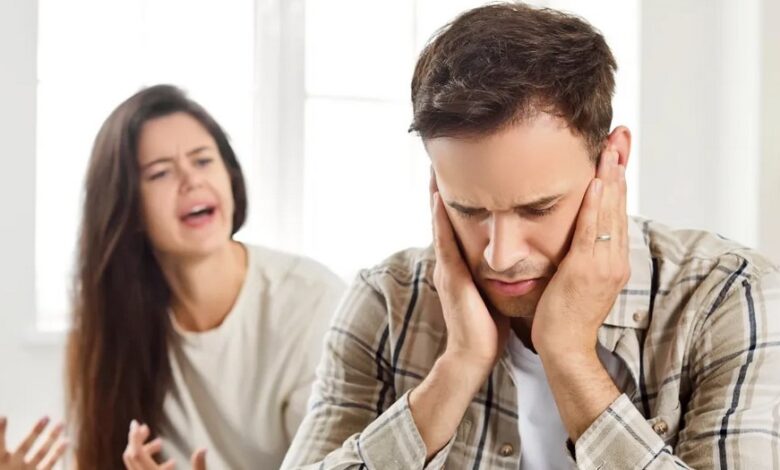
It’s a no-brainer that sleep is vital for one’s health. That is why so many researchers study the best way to get good quality shut-eye. However, forget chamomile tea and meditating before bed. According to new research, women sleep better next to dogs. That’s right; Canisius College in New York State conducted a study that found that canines make better-sleeping partners than humans or cats.
“We found that women commonly rate dogs as better bed partners than cats and human partners and report that their dogs enhance their sleep quality,” Christy Hoffman, Ph.D., animal behaviorist and lead researcher of the study.
Research Finds that Women Sleep Better Next to Dogs
Hoffman surveyed almost one thousand women living in the United States to come to these findings. The results showed that 55% of the participants shared their bed with at least one dog and 31% with at least one cat. Also, 57% of these women shared a bed with a human partner, while the rest did not. [1]
Hoffman also discovered why dogs seemed to make the best bed companions. The first reason is that dogs’ sleeping patterns, as opposed to cats, more closely resemble those of humans.
“The difference between dogs and cats is not surprising because dogs’ major sleep periods tend to coincide more closely with humans’ than do cats,’” said Hoffman.
However, while there may be benefits of these similar sleeping patterns, more research is needed to know for certain. But Hoffman has some ideas of how this could work.
“In comparison to human bed partners, dogs may be better at accommodating their human’s sleep schedule,” she said. “It’s not uncommon for human bed partners to go to bed at very different times and wake up at very different times. Such differences in partners’ schedules can certainly disrupt sleep. It may be that dog bed partners adapt more readily to their owner’s schedule than do human bed partners.”
Moreover, dogs require certain schedules and responsibilities, such as a morning walk. This kind of regime helps their owners maintain a routine, improving sleep quality as a result.
Stillness and Security
Additionally, dogs tend to stay stiff as they sleep. Anyone who’s slept with a fidgety partner knows how disruptive they could be. However, women in the study reported that their dogs stayed on the bed most of the night instead of felines, who tended to come and go.
“This suggests that cats may be more likely than dogs to create disruptions by moving on and off the bed during the night. In addition, we found that dog owners kept to more consistent bedtime and wake time schedules than cat owners and also tended to go to bed earlier and wake up earlier than cat owners,” Hoffman said.
Here’s the third and most important reason: Canines provide a sense of security to their owners. More so than with cats or even human partners.
“Some dog owners may take comfort in the thought that their dog will alert them in the case of an intruder or other type of emergency; furthermore, a dog’s bark may deter a potential intruder. A cat is less likely to take on this role, and so, may not provide psychological comfort in the same way a dog might,” said Hoffman.
The Best Partner for Quality Sleep
However, while the study suggests that dogs are the perfect slumber buddies, their benefits are subjective to each case. For example, a dog could snore or make the bed too hot. Additionally, there are many owners who find that their cats help them sleep.
Keep in mind that the research was based on how the volunteers perceive their pets’ effects on their sleeping quality and duration. As a result, more objective research is needed to definitively consider dogs the superior sleeping partners. However, Hoffman believes that these studies could be beneficial as many American households have pets.
“It will be valuable to continue this line of research so we can develop a clearer picture of the contexts under which pets and their presence in their owner’s bed may positively impact sleep quality, and the contexts under which co-sleeping with a pet may be detrimental to one’s sleep quality,” she said.
For instance, research has also shown that women sleep better while alone than with a human, but many believe in the opposite. Future research could use Fitbit-like devices to objectively track the sleep quality of people in different sleeping conditions.
4 Shocking Behaviors of Entitled Husbands and the Powerful Lessons Their Wives Taught Them

When husbands think they run the world, their wives are quick to remind them who’s really in charge! From couch crises to lingerie smackdowns, these tales show that “happy wife, happy life” isn’t just a saying—it’s essential for survival!
Welcome to the Marriage Mishaps Hall of Fame, where husbands’ egos deflate faster than dollar-store balloons! Our sassy wives turn domestic dramas into comedy gold, proving that behind every great man is a woman rolling her eyes. Grab your popcorn as we watch husbands learn that karma can come gift-wrapped in granny panties! 🤣
Tale 1: “Sorry Honey, Can’t Pick You Up… My Ego’s In The Way!”
After a week-long conference in Singapore, all I wanted was to see my husband Jake at the airport. Instead, he texted to say he was helping Katie from accounting move her couch.
I called his best friend Chris for backup and, while Jake enjoyed his couch-moving adventures, I prepared a romantic dinner for Chris and me. When Jake walked in, he was met with a candlelit table and Chris sipping his special wine.
Jake squirmed through dinner while I praised Chris’s reliability over his “furniture emergency.” The next time Katie needed help, Jake mysteriously became terrified of furniture. Turns out, a little pasta and petty revenge can work wonders!
50 Shades of Granny: A Lingerie Lesson in Humility
My husband Rob had been saving for a vintage Mustang, which meant I was stuck wearing boring cotton underwear. Then I discovered a group chat where he’d shared a photo of my “granny panties” for laughs.
Instead of sulking, I involved his mother, who took me shopping for a designer dress that cost his car fund. I surprised Rob at home, flaunting my new look and sending a selfie to his friends. Now, his “car fund” is officially the “Happy Wife Fund,” and I framed my granny panties as a reminder!
The Day My Man Flu Became My Mother-in-Law’s Boot Camp
While I was bedridden with the flu, my husband Pete hosted a Super Bowl party in our bedroom. When he asked me to grab snacks, I called his mom, Eleanor.
She arrived like a whirlwind, turning our home into a military operation. While I relaxed, Pete and his friends deep-cleaned everything. Now, every time I sniffle, Pete turns into a caring nurse, proving that a mother-in-law’s intervention can fix “selective caretaking syndrome.”
My 30th Birthday Surprise
I hinted for weeks about my upcoming 30th birthday, but Pete ditched me for a concert with his co-worker Emma. Instead of being upset, I snagged backstage passes and performed onstage, calling out Pete for celebrating with another woman.
The crowd loved it, and now Pete treats my birthday like a national holiday. Emma? She’s mysteriously developed a dislike for concerts.
The Last Laugh!
Let’s face it: marriage is a game of “Who Can Be The Most Petty?” And ladies, we’re winning! Whether it’s turning airport snubs into dinner shows or granny panties into victory flags, we show that revenge is best served with sass. So, husbands, remember: your wife can turn a ‘guys night’ into a TED Talk about your most embarrassing moments in a heartbeat!



Leave a Reply